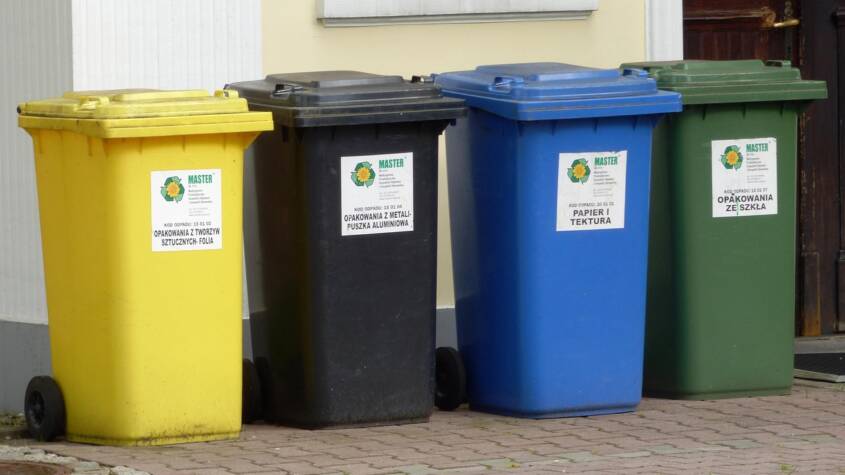
Finding convenient recycling dropoff locations can greatly simplify the process of sustainable living. Numerous facilities exist across various communities, making it easier for individuals to recycle their unwanted materials responsibly. Knowing where these locations are not only promotes effective recycling habits but also contributes to a cleaner environment.
Many drop-off sites cater to different types of materials, including plastics, glass, metals, and paper. This variety ensures that community members can recycle a wide range of items without difficulty. Engaging with local recycling programs can also foster a sense of community involvement, encouraging others to join efforts in waste reduction.
Understanding the hours of operation and specific guidelines for each drop-off location is crucial for maximizing recycling efforts. This information can often be found on local government websites or through community organizations. Making a plan to visit these drop-off spots can help eliminate clutter while supporting a sustainable future.
Recycling Drop Off Locations
Recycling drop off locations are essential for facilitating proper waste management. They provide convenient access for residents to dispose of recyclable materials, helping to reduce landfill waste and promote sustainability. These locations vary in type, offering different services depending on community needs.
Municipal Collection Sites
Municipal collection sites are typically operated by local government bodies. These sites are strategically placed throughout towns and cities to ensure accessibility.
Visitors can find clearly marked bins for various materials such as paper, glass, and plastics. Many municipal sites also accept electronics and hazardous waste on specific days.
Operating hours may vary, so checking with local authorities for the latest information is advisable. Regular community outreach often helps to increase awareness and participation in recycling programs.
Retail Partner Locations
Retail partner locations often include grocery stores, large retailers, and other businesses that participate in recycling initiatives. These locations frequently provide collection bins for specific recyclable items like plastic bags, batteries, and other consumer goods.
For example, many grocery chains offer drop-off spots for plastic bags, which are not accepted at curbside recycling. Retail partners may also engage in educational efforts to inform customers about proper recycling practices.
The convenience of these locations encourages individuals to recycle regularly while shopping, making waste reduction easier for the public.
Specialized Recycling Centers
Specialized recycling centers focus on handling specific materials that require particular processing technologies. Examples include centers dedicated to electronics, tires, and construction materials.
These facilities often provide services not available at municipal sites, such as secure data destruction for electronic devices. They may also offer incentives for dropping off items, such as gift cards for electronics recycling.
Specialized centers often hold events for collecting larger items or hazardous waste, typically announced through community channels. Understanding what each center accepts will maximize recycling efforts and minimize contamination.
Materials Accepted
Recycling drop-off locations accept a variety of materials to facilitate proper waste management and promote sustainability. Understanding which materials are accepted can help individuals properly sort their recyclables and minimize contamination.
Common Recyclables
Many recycling centers accept common household items. These usually include:
- Paper: Newspaper, magazines, and office paper
- Plastics: Containers marked with recycling symbols #1 (PETE) and #2 (HDPE)
- Metals: Aluminum cans and tin cans
- Glass: Clear, green, and brown glass bottles and jars
It is crucial that these materials are clean and free from food residue. Contaminated items can render entire batches unrecyclable, leading to increased landfill waste.
Hazardous and Electronic Waste
Hazardous waste includes materials that pose risks to health and the environment. Common items in this category are:
- Batteries: Car batteries and rechargeable batteries
- Paint: Leftover paints and solvents
- Fluorescent bulbs: These contain mercury and require special handling
Electronic waste, or e-waste, consists of discarded electronic devices. Examples are old computers, televisions, and mobile phones. Many locations have specific drop-off events for these items due to their hazardous components.
Large and Bulky Items
Recycling locations may also accept large or bulky items, although policies can vary. Common large items include:
- Furniture: Sofas, chairs, and mattresses
- Appliances: Refrigerators, washing machines, and microwaves
Individuals should check in advance if these items are accepted and if there are any associated fees. Some facilities offer scheduled pick-up services for large items, ensuring they are recycled properly.
Lawncare Services: Expert Tips for a Lush, Healthy Yard
Lawncare services play a crucial role in maintaining a healthy and attractive outdoor spac…








